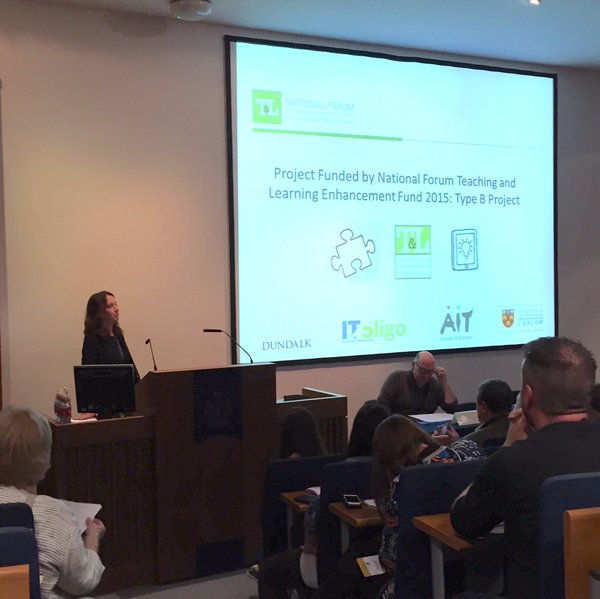Technology Enhanced Assessment Methods (TEAM) in Science & Health Practical Settings
Below, please find details of the TEAM project's outputs at conferences and workshops.
- April 2017:
- National Forum Seminar Series NUIG Presentation:
NUI Galway, National Forum Workshop, April 2017.
- October 2016:
The 4th TAR UC International Conference (‘TIC 2016’) on Learning and Teaching, Kuala Lumpur, Malaysia.
- June 2016:
TEAM Project Symposium & Workshop, Athlone, Ireland.
- May 2016:
EdTech, Dublin, Ireland
Exploring ways to enhance practical assessment using digital technologies in Science and Health programmes: the Technology Enhanced Assessment Methods (TEAM) project approach.
Ronan Bree*, Edel Healy*, Moira Maguire*; Don Faller**, Nuala Harding**, Ann Mulvihill**; Dina Brazil***, David Dowling***; Akinolu Akande****,David Doyle****, Jeremy Bird****
In Science and Health practical sessions, the development of both technical and soft skills is essential in terms of both student learning and employability. The IoT sector in particular places a major value on producing graduates who are ‘workplace ready’ with an emphasis on developing practical skills. It is widely recognised that assessment can influenEdtech 2016ce student learning, effort and engagement. However, there is considerable scope for improvement in practical assessment practices at undergraduate level where concerns such as over-assessment, authenticity and graduate skill development are widely acknowledged (e.g. Bree et al., 2014; Hunt et al., 2012). The Technology Enhanced Assessment Methods (TEAM) project, funded by the National Forum for the Enhancement of Teaching and Learning under the 2015 Enhancement Fund, is exploring the potential offered by digital technologies to address these concerns.

